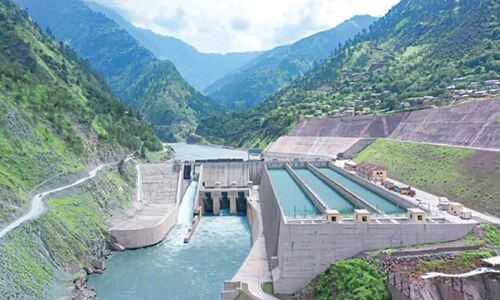ISLAMABAD: The federal cabinet has approved a revised draft of the State Bank of Pakistan (SBP) Amendment Bill 2021, promising complete autonomy to the central bank and placing a complete restriction on the government’s borrowing from the central bank.
All told, 54 amendments, including 10 new sections, have been introduced to the SBP Act 1956.
The SBP Amendment Bill 2021, first approved in a cabinet meeting on March 3, was revised earlier this month following observations from the law division, Prime Minister Secretariat and main opposition parties. The revised bill was approved in the cabinet meeting on Tuesday to be introduced in the National Assembly.
A comparative analysis of the first and the revised bill along with observations from Prime Minister Office and responses from the SBP indicates that the revised bill entails more “focus on accountability and balancing the autonomy of the central bank”, according to official documents seen by Dawn.
Cabinet okays bill granting autonomy to central bank
The proposed amendments include domestic price stability as the primary objective of the SBP. To achieve this, the central bank will be guided by the medium-term inflation target set by the government.
Though supporting the government’s development agenda will be a tertiary objective of the SBP, the central bank is believed to continue government’s policies for economic growth as far as this support does not undermine its primary objective of price and financial stability.
Central bank’s board
To strengthen SBP’s institutional autonomy, the status of the finance secretary is proposed as a non-voting member of the board of directors. Similarly, deputy governors will have the right to attend board meetings but not the right to vote, the bill says. The government or governor can appoint/designate an acting governor in his/her absence.
The SBP governor will be the chairperson of the board, it says, adding that in his/her absence, the board will be chaired by the deputy governor in charge of the relevant board meeting agenda items. The deputy governor will have the right to cast the decisive vote when he presides over the board in the governor’s absence, it says.
Prohibition on govt’s borrowing
As part of the proposed amendment for a prohibition on government lending, the SBP will not extend any direct credits to or guarantee any obligations of the government or any government-owned entity or any other public entity. However, the central bank clarifies that there is no such limitation proposed in the SBP Act that impacts the power of the government to issue sovereign guarantees. Moreover, the proposed amendment does not lay a restriction on raising loans by the government.
The SBP Act only applies to the central bank. The proposed amendments would not have any impact on the government’s ability to introduce concessional financing/loan for small and medium enterprises, start-ups and Naya Pakistan Housing Programme, etc.
The bill says that the central bank, too, shall not purchase government securities — debt instruments that a government sells to fund its daily operations and special infrastructure and military projects — in the primary market, where securities are first created and issued.
However, the SBP may purchase government securities in the secondary market, where these instruments are traded among investors. The bill says the government should pay off the debt it owes to the central bank in line with the already agreed schedules and no rollover be allowed.
It explains that this amendment, in particular, is aimed at bringing fiscal discipline.
SBP appointments
The SBP governor and its non-executive directors will be appointed by the president of Pakistan on the federal government’s recommendation after taking into account the eligibility and disqualification criteria laid down in this act.
The SBP deputy governors will be appointed by the federal government after consultations between the finance minister and the SBP governor. They will be appointed from a panel of three candidates recommended by the governor for each vacant position in order of merit. Similarly, external members of the Monetary Policy Committee (MPC) will be appointed by the federal government on recommendations by the SBP board.
The bill proposes that the governor, deputy governors, non-executive directors and MPC members will be appointed for a period of five years and be eligible for one re-appointment for another term of five years after the end of their initial tenure. The current governor and deputy governors can be appointed for another term of five years.
Immunity clause removed
In the revised draft, the clause provides immunity to the SBP governor, deputy governors, directors of the board, including sitting directors and those who have retired or completed their terms in office, from accountability watchdogs, the National Accountability Bureau and Federal Investigation Agency, has been removed.
Published in Dawn, December 30th, 2021















































Dear visitor, the comments section is undergoing an overhaul and will return soon.